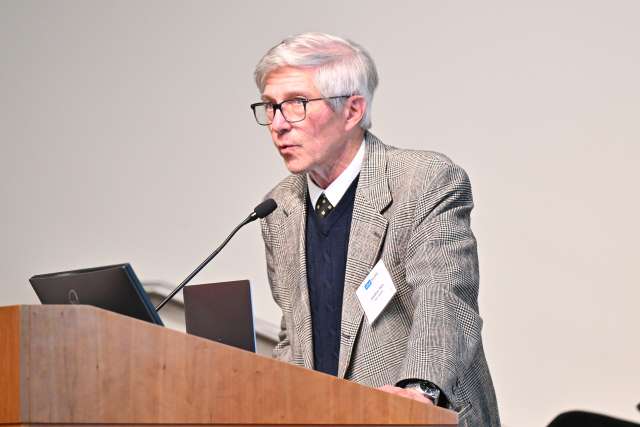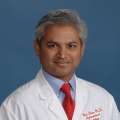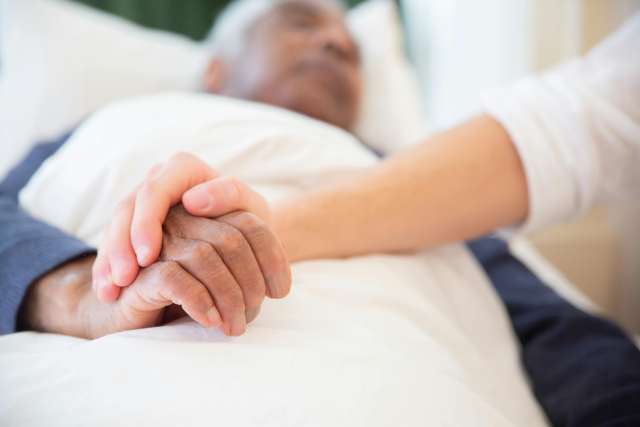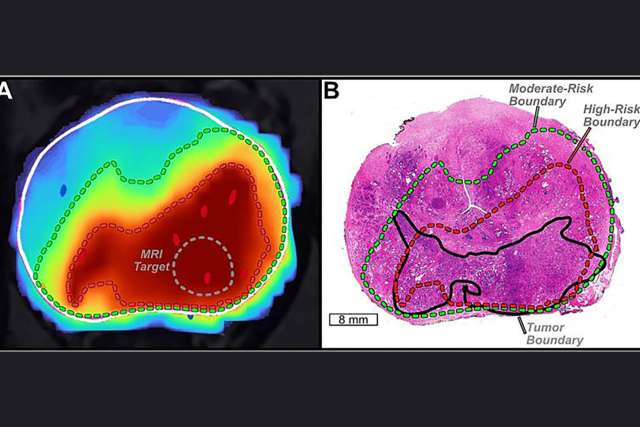When UCLA Health’s Jonathan Tobis, MD, became a cardiologist in the 1970s, his area of practice – interventional cardiology – did not yet exist.
But almost immediately, he began making contributions that helped define the emerging field that diagnoses and treats cardiovascular diseases and conditions through catheter-based procedures.
Dr. Tobis’ extensive body of research and decades of patient care will be recognized at a symposium on April 6. The event, sponsored by UCLA Health and the David Geffen School of Medicine at UCLA, also will celebrate a large gift in his honor. The gift, from Yardi Systems, will fund Dr. Tobis’ research and create an endowed chair in his name.
Ravi Dave, MD, director of interventional cardiology at UCLA Health, said Dr. Tobis is not only a pioneer, but several generations of interventional cardiologists call him their mentor.
Learn more about interventional cardiology services and research at UCLA Health
“He has not only impacted on a personal level with all the patients he’s looked after, but by training the next generation of leaders he has shared that knowledge for the betterment of communities and patients all across the U.S. and the world,” Dr. Dave said.
The tribute comes as Dr. Tobis, 76, undergoes treatment for kidney cancer. He said he’s feeling well but that his life expectancy could be a few months to a few years.
Despite that uncertainty, Dr. Tobis, professor emeritus and director of interventional cardiology research, said he has no plans for full retirement.
“I love being a doctor,” he said. “I love taking care of patients, helping people. I would be bored if I didn’t do this.”
Transformative research
Dr. Tobis grew up in New York but came to Southern California in 1975 for residency at UC Irvine. He and his wife, Nancy Greep, MD, have two sons and two granddaughters.
While at UCI, his work transformed the cardiac catheterization laboratory by ushering in the digital age.
He and his mentor, the late Walter Henry, MD, began working to develop digital angiography. An angiogram is a diagnostic test that uses X-rays to look at the heart’s blood vessels, using a catheter and contrast dye. It checks for blockages that can cause heart attacks.
At that time, X-ray films had to be developed, which took about an hour. They could only be viewed with a large, specialized machine, Dr. Dave said.
“If you were sharing that information with a doctor across the country, you would make a copy and send it to them,” Dr. Dave said. “It was very cumbersome and almost prohibitive in terms of sharing information.”
Dr. Tobis began working with animal models to digitize the process to allow for real-time imaging. The only computer fast enough for them to work on belonged to a company in Silicon Valley.
“They would work with the computer all week and send it to Orange County for the weekend,” Dr. Tobis said, adding that it would get sent back up on Sunday nights.
In the early 1980s, Dr. Tobis performed the first digital left ventricular and coronary angiograms in the world. The innovation transformed the practice of angioplasty, a procedure to stretch open a narrowed artery with a balloon.
“Now you could do an angioplasty and get the results back immediately on the computer,” he said. “You couldn’t really do them before. You couldn’t really see what you were doing. Now you’ve got immediate feedback.”
Dr. Dave said digital recordings of angiograms also allow patient records to be transmitted in a fraction of a second to other doctors.
“They have the full 360-degree view of what’s going on with the patient,” he said.
Dr. Tobis went on to help develop the field of intravascular ultrasound imaging, which helped significantly improve coronary artery angioplasty. The work helped usher in safer placement of life-saving stents to prevent heart attacks.
“That particular procedure has really changed the way we practice,” Dr. Dave said. “It has been a game changer in our field and has resulted in significantly better outcomes for patients.”
Dr. Tobis said the placement of stents, which restore blood flow to the heart without open heart surgery, were once used only as a last resort. The procedure had a high complication rate because blood clots could form in the artery and patients sometimes died.
Dr. Tobis collaborated with Italian cardiologist Antonio Colombo, MD, who will speak at the symposium. They discovered through ultrasound that bigger balloons with higher pressure were needed to safely expand the artery. Additionally, patients no longer needed to take blood thinners or undergo long hospital stays.
“That changed the performance of angioplasty so that it became much more reasonable, much less risky,” Dr. Tobis said.
In 1998, he became board certified in the newly offered subspecialty of interventional cardiology. A year later, he joined UCLA as a clinical professor of medicine.
His current research centers on patent foramen ovale (PFO), one of the most common congenital heart defects. PFO is a hole in the heart that didn't close during infancy. Most people never need treatment, but for some the condition is associated with migraines and stroke. Dr. Tobis is principal investigator of a study looking at migraines and closure of the PFO.
Legacy of patient care
Dr. Tobis sees patients two days a week. He no longer performs high-risk procedures but still does PFO closures.
Dr. Dave said Dr. Tobis has a colorful, enthusiastic personality that makes him popular with patients.
“Dr. Tobis is extremely personable,” he said. “I’ve never seen him in a bad mood. Patients love him because he can connect with them.”
At 68, when he retired from full-time work at UCLA Health, Dr. Tobis spent a month hiking the 210-mile John Muir Trail before returning with reduced hours. Four years ago, he returned to the trail and completed half.
Dr. Tobis said he expected to live a long life, in part because of his excellent physical condition.
He was diagnosed with kidney cancer in March 2023. He underwent removal of the cancerous kidney and all seemed good. In September, he said, a CT scan showed significant spread at the original tumor site.
For the past 43 years, Dr. Tobis has written an annual year-end holiday letter. Last year, he wrote what he expected would be his final letter, sharing the severity of the recurrence. As a long-time friend and supporter of Dr. Tobis, Anant Yardi, the founder and CEO of Yardi Systems, received the letter. In response, Yardi Systems made the legacy-honoring gift.
In a statement, Yardi said, “We are privileged to be able to support Dr. Tobis and his ongoing research in patent foramen ovale closure. Establishing an endowed chair in Dr. Tobis’ name acknowledges his devotion to patient care, clinical research, and also his contribution to the cardiology department at UCLA’s Geffen School of Medicine.”
Dr. Tobis started immunotherapy and has responded well.
“I feel fine,” he said. “I’m playing tennis. I just don’t know what the future will bring.”
Dr. Dave said he and his colleagues are devastated about Dr. Tobis’ diagnosis.
“This has really hit us close to our hearts,” he said. “We are all praying that he recovers from his condition and can continue to be influential for not only the people he has touched but many generations in the future.”
Friends and family from across the country will attend the symposium, including Dr. Tobis’ son, who is a urologist in Santa Barbara. Dr. Tobis described the occasion as a tremendous honor.
“I’ve had a wonderful career and enjoyed what I did,” he said. “I think I helped a lot of people. I have no regrets.”




